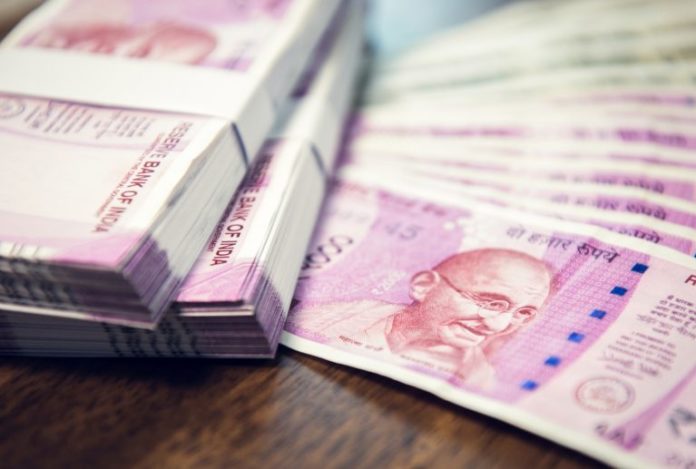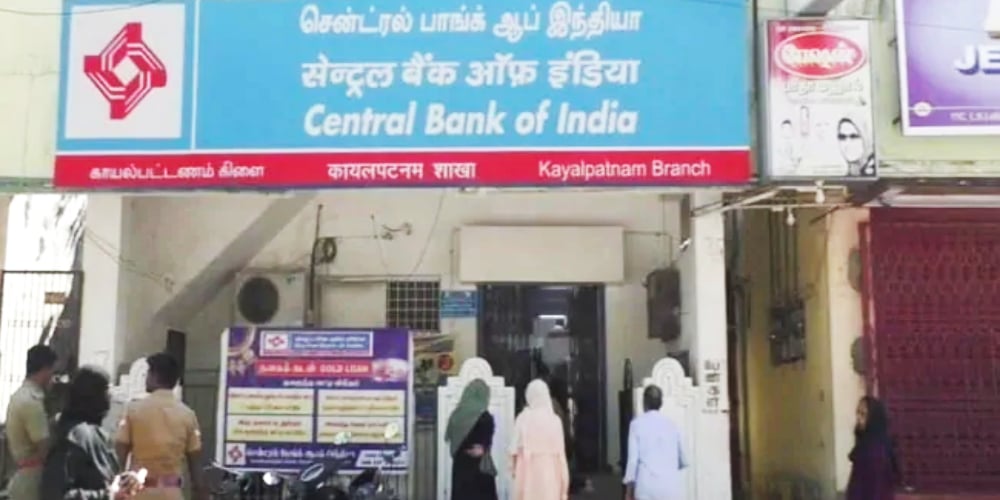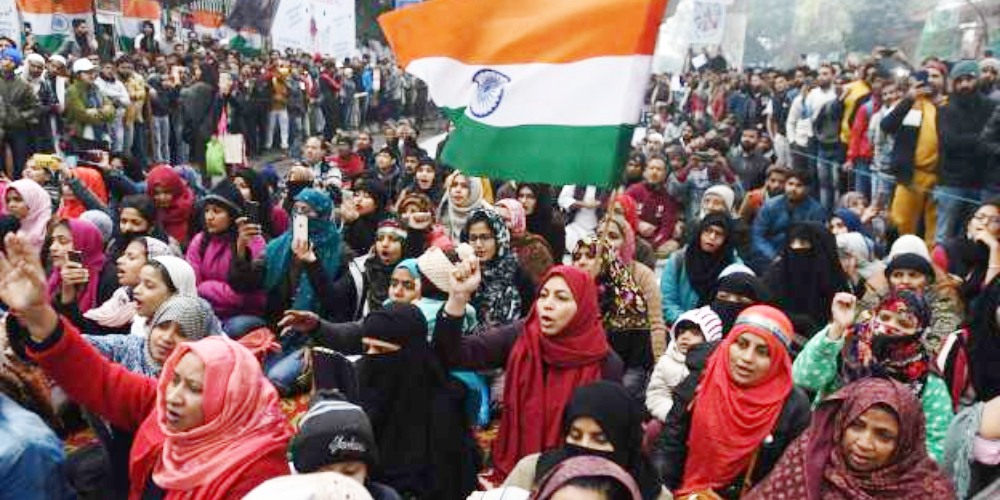
Hundreds of customers went on a withdrawal spree after an Indian bank announced its revised KYC requirements. The bank’s action followed the decision by the Reserve Bank of India (RBI) to include the National Population Register letter as a valid KYC document for opening bank accounts. Customers are worried their funds could be frozen.
Also read: Regulatory Roundup — New US Crypto Tax Bill, Central Banks Join Forces on Digital Currencies
Customers on Withdrawal Spree
Customers of the Central Bank of India’s Kayalpattinam branch in the state of Tamil Nadu have been on a “panic withdrawal” spree after the bank issued a notice in a local newspaper regarding its revised know-your-customer (KYC) requirements, local media reported on Jan. 23. The Central Bank of India, a government-owned bank, is one of the oldest and largest commercial banks in India.
The notice, posted on Jan. 11, states that a letter from the National Population Register (NPR) will be made a valid document as part of the bank’s KYC process. Panic ensued as many people oppose the contentious Citizenship Amendment Act (CAA), the National Register of Citizens (NRC), as well as the NPR. Many customers reportedly said they are scared that their money could be blocked.
An officer of the bank told NDTV on Wednesday that “Normally we would have a withdrawal of around 25 lakh [2.5 million] every day,” adding:
Now this has shot up by six times. People are just leaving minimum balance in their accounts.
The Indian Express reported on Thursday that soon after the notice, “Hundreds of customers in Kayalpattinam village, many of them belonging to the Muslim community, reached the bank branch to withdraw their money.” A bank official said similar reports are coming from branches in many places.

According to the Siasat publication, the documents mentioned in the bank’s notice were the PAN card, passport, voter identity card, driving license, National Rural Employment Guarantee Act card, Aadhaar and NPR letter. The notice further states that the accounts of the persons who failed to submit documents would be frozen, but does not mention whether the customers have to submit all the documents or any one of them.
Optional but Customers Won’t Listen
Following mass withdrawals, the bank sent out another notice on Jan. 19 to clarify that the NPR letter is optional and customers can choose to submit it or other KYC documents. The bank further claims that its earlier announcement was a mistake. However, local media reported that confusion prevailed and customers continued their “cash withdrawal spree.”
“We approached community leaders and Jamaat committees of Kayalpattinam to convince our customers as a large amount was withdrawn in less than three days,” an official of the bank told the Indian Express. “We do not even know if we could convince all customers and get them back to our branch.” Noting that most of the branch’s customers are Muslim and many of them have withdrawn almost their entire savings, he said:
Customers were not listening to our words. The panic was so much that even community elders had to struggle to convince them.

A government employee and customer of the bank told the news outlet that nearly all customers of the branch had panicked. She was quoted by the publication as saying:
Since we had the experience of demonetisation that forced us to stand in the queue for so many days, every customer who was panicked reached the bank. Bank officials were helpless as they couldn’t convince us why RBI included NPR in the list before it is even updated in most states.
According to local media, some customers withdrew due to the KYC notice confusion while others did it as a mark of protest against the NRC and the NPR.
RBI’s Decision to Include NPR Letter for KYC
The bank’s notice followed the decision by the RBI to include the NPR letter as a valid KYC document. According to the “Master Direction” for KYC posted on the RBI website, updated on Jan. 9, “‘Officially Valid Document’ (OVD) means the passport, the driving license, proof of possession of Aadhaar number, the Voter’s Identity Card issued by the Election Commission of India, job card issued by NREGA duly signed by an officer of the state government and letter issued by the National Population Register containing details of name and address.”

The NPR is a register of “usual residents” of the country, which is defined as a person who has resided in a local area for the past six months or more or a person who intends to reside in that area for the next six months or more, explained India’s Office of the Registrar General & Census Commissioner. The NPR data was first collected in 2010 and it is to be done every 10 years. It is mandatory for every usual resident of India to register in the NPR.
Some Muslim groups and parties like the Manithaneya Makkal Katchi (MMK) are up in arms over the new requirements, NDTV reported. “Many fear it is a move to normalize the submission of the NPR letter … Many protested outside the RBI blaming it for the confusion and have called for a boycott of the Central Bank of India for hasty implementation amid public protest.”
Ahmed Shah, a lawyer who opposes the NPR, transferred his savings to a private bank. He told NDTV that he would close all accounts at the bank if this rule is implemented. He was quoted as saying, “We are not even accepting NPR and why should we even show it?” MMK founder Professor Jawahirullah led the NPR protests on Wednesday. He was quoted as saying:
What we demand is RBI should withdraw this circular demanding NPR as one of the components of KYC as we fear in the next step NPR will be the only one document which they may need.
What do you think about providing the NPR letter for KYC to open a bank account? Let us know in the comments section below.
Disclaimer: This article is for informational purposes only. It is not an offer or solicitation of an offer to buy or sell, or a recommendation, endorsement, or sponsorship of any products, services, or companies. Bitcoin.com does not provide investment, tax, legal, or accounting advice. Neither the company nor the author is responsible, directly or indirectly, for any damage or loss caused or alleged to be caused by or in connection with the use of or reliance on any content, goods or services mentioned in this article.
Images courtesy of Shutterstock, Outlook India, and Biplov Bhuyan/Hindustan Times via Getty Images.
Did you know you can buy and sell BCH privately using our noncustodial, peer-to-peer Local Bitcoin Cash trading platform? The local.Bitcoin.com marketplace has thousands of participants from all around the world trading BCH right now. And if you need a bitcoin wallet to securely store your coins, you can download one from us here.
The post Panic Withdrawals at Indian Bank Over Alarming KYC Notice appeared first on Bitcoin News.

Bitcoin.com is author of this content, TheBitcoinNews.com is is not responsible for the content of external sites.
Our Social Networks: Facebook Instagram Pinterest Reddit Telegram Twitter Youtube











